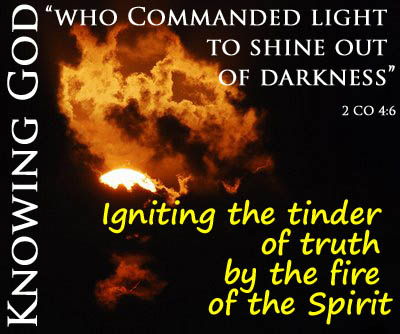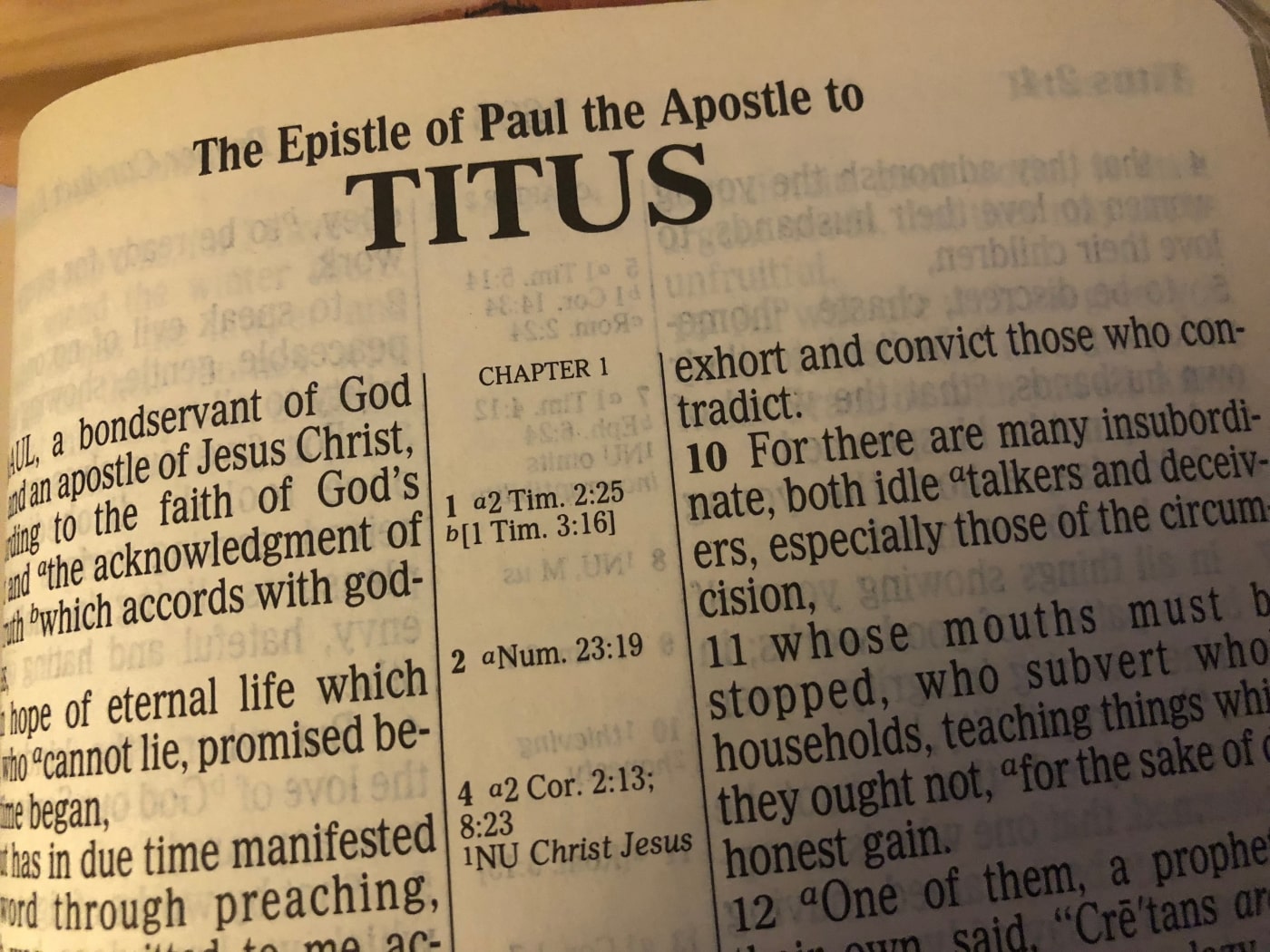
Knowing God—A Study in 2nd Corinthians
Moving Beyond Knowledge into Experience—
Igniting the Tinder of Truth by the Fire of the Spirit
This conference was presented in Northern Virginia February 28–March 2, 2014.
“For it is the God who commanded light to shine out of darkness,
who has shone in our hearts to give the light of the knowledge
of the glory of God in the face of Jesus Christ.” 2Co 4:6
Second Corinthians is much more than just a defense and vindication of Paul’s ministry. It expounds the foundation of his life and service in the experiential knowledge of God in all His varied manifestations to Paul. In other words, Paul was who he was, and did what he did, because he continued to grow in his knowledge of God. This knowledge was not merely intellectual or academic. Rather it was essentially experiential, as Paul came to know the living Christ in his daily life.
Gene Cunningham - February 3, 2003
Titus #4

Scripture References: Proverbs 22:15, Hosea 1:6, Ephesians 6:1, Romans 8:29, Hosea 4:6, Genesis 18:19, Hosea 1:1-3, Deuteronomy 5:16, Ephesians 1:11, Deuteronomy 21:18-21, Proverbs 22:6, Romans 9:1-5, Exodus 20:12, Hosea 2:14-23, Romans 1:29-31, Ephesians 6:4, Proverbs 26:3, Ephesians 2:4-6, Ephesians 6:2, Ephesians 6:1-3, Proverbs 11:24, Hosea 2:1, Exodus 20:12, Titus 1:4, Proverbs 23:13-14, Hosea 1:6-8, Colossians 3:20, Ephesians 1:3, Isaiah 3:12
From Series: "Titus - 2007"
The Apostle Paul wrote to Titus a student of his who became a pastor regarding faith knowledge and hope.

